
People
Out of the Darkness, a Rainbow
A rainbow is a sight of wonder. It appears as a beacon of hope after a period of rain. It is most dramatic when it emerges against dark clouds that are being chased away by the sun. It is a fitting image for Darlene, an image she uses to describe her life today.
“My life was once black,” she says. “Now it’s a rainbow!”
For Darlene to describe her life as black is not hyperbole, in fact, it’s almost an understatement. She has lived through tragedy from which others might not have recovered and certainly not with such a positive outlook.

A BLEAK BEGINNING
The dark clouds in her life have carried violent storms. Her childhood was marked by alcoholism and abuse. As an adult, she has lived through her own alcoholism and drug addiction. All of it impacted her mental health, so much so that she tried to end her own life.
But the greatest storms in Darlene’s life are those that have brought death. Darlene has lost her parents. Her younger sister was killed when a logging truck lost control and flipped its load onto her. A second brother was murdered by a family friend. Her oldest brother has also died, devastating to Darlene because he supported her through all the tragic circumstances of her life. All of this loss would be enough to bring a strong person to despair and yet the greatest loss was the loss she experienced as a wife and mother.
As a teenager, she tried to escape the abuse in her home by marrying a man nearly 20 years her senior. Together they had four children, adding to the four he already had. It was a short, difficult marriage. Then, in 1986, Darlene’s life changed forever.
“My husband had a breakdown. One night, he lost control of all his senses and viciously attacked me for sixteen hours,” she says. “He then murdered all four of my children and then killed himself.”
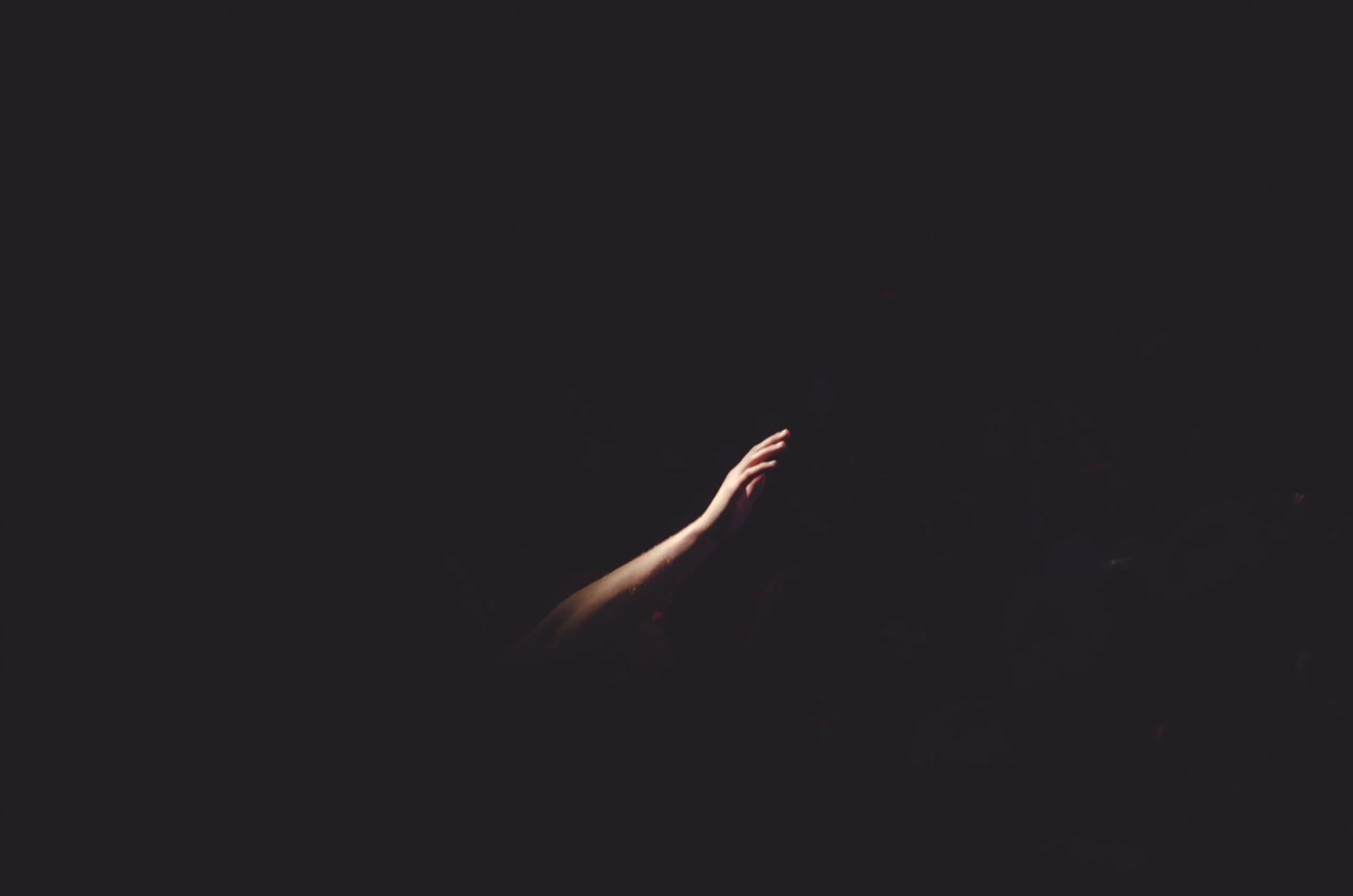
INTO THE BLACK
It’s hard to fathom all that is contained in those three short sentences, let alone experience it. Darlene not only lived it but somehow survived it. In the month that followed the murder of her children, she attended the inquest. She was required to testify and had to relive the experience daily. In that same month, Darlene also fought for custody of her step-daughter, having to prove herself capable of being her parent. She was successful. Looking back, Darlene marvels at her own resilience, especially given that she lost her sister, one of her older brothers, and her children all within a 10-month period.
“So much loss in such a short time; you’d think I would have lost it too. But, fighting through depression, I raised my step-daughter, remarried, and tried to live a normal life.” – Darlene
She worked hard at being a good mother, preparing home-cooked meals and creating a home. She was always improving her skills, taking workshops and training sessions in order to improve her employability. She worked at a variety of jobs – everything from typesetting at a newspaper to hydraulic pipe laying to data entry. She’s worked as a cook, a gardener, and a painter. She’s even done some modeling.
Still, ‘normal’ would prove to be elusive. Darlene began to drink; first, in order to be social, to be a part of her second husband’s life. Slowly the alcohol took over and contributed to the end of her marriage.
“Booze and depression don’t mix,” she says. “Every time I drank, I would become a different person: an ugly, mean, depressed person. Finally, my husband just walked out, never to be seen again. For me, it was the final straw.”
Darlene had a nervous breakdown and tried to kill herself. She ended up in hospital and her journey through the mental health system began. Meetings with psychiatrists were unhelpful as she felt that she was not being heard or respected. She turned to drugs to numb the pain only hurting herself and others along the way. After six years of living with pain and addiction, Darlene hit rock bottom. She checked herself back into hospital and insisted on being admitted into a rehabilitation program. That proved to be a turning point, the beginning of a long, stormy road to recovery.
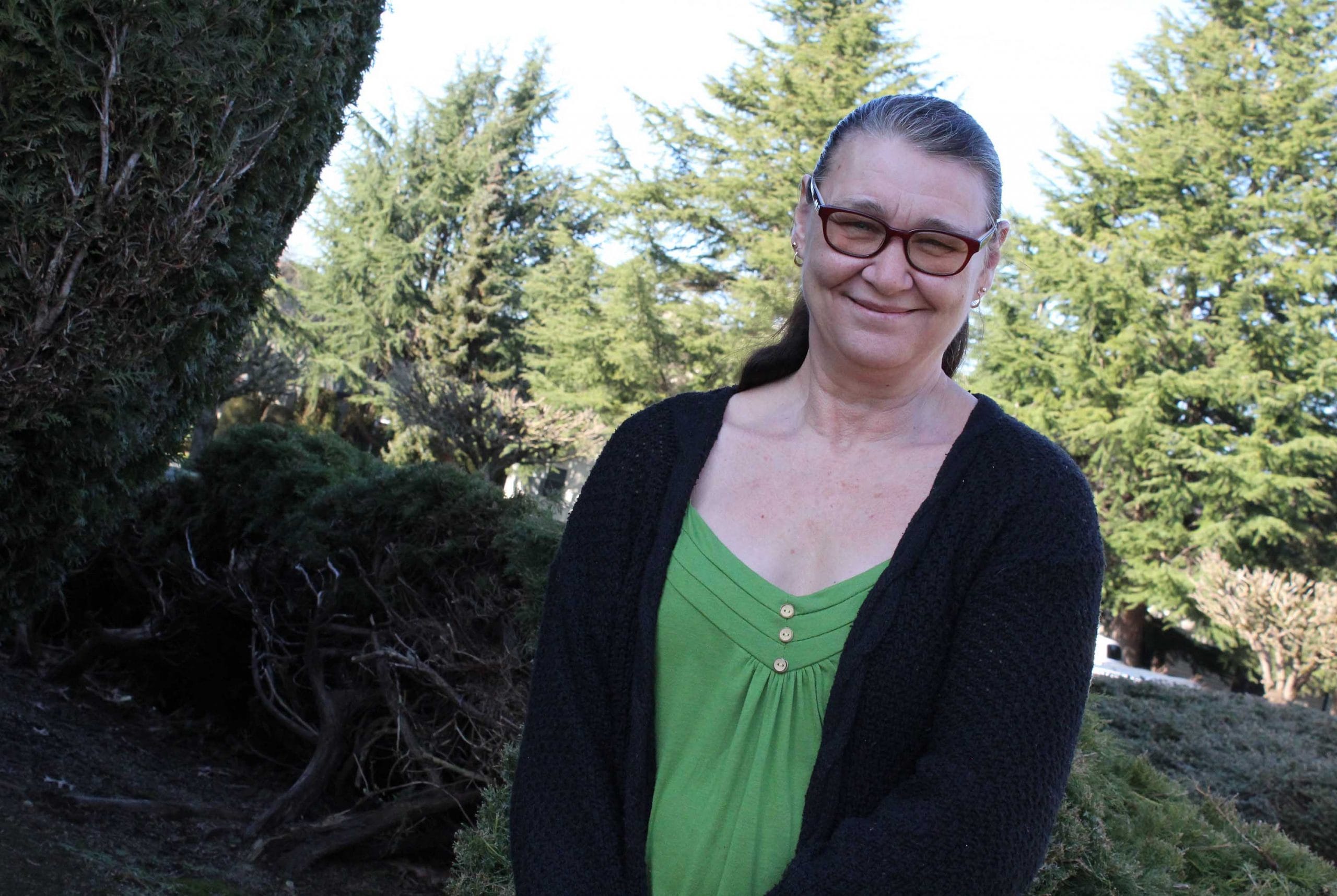
FIGHTING FOR HER HEALTH
It was while Darlene was in recovery that her eldest brother died, a great loss as he had always been such an encouragement and help to her. Her parents both died shortly afterwards. One might think that even more loss would be a setback but Darlene persevered.
Getting help that truly worked for her was a challenge. She went through several support workers before finally finding someone with whom she truly connected.
“Instead of telling me what to do or how to feel, she listened,” Darlene explains. “She took the time to figure out how I learned, how I communicated, how I felt.”
Her case manager advocated for her, helping Darlene navigate paper work, working with doctors to find the right medication to support her mental health. She says that it has been an honour to be part of Darlene’s recovery journey.
“Darlene’s courage and resilience are nothing short of inspiring,” she says. “Seeing her living in gratitude and joy and building her life in such positive ways gives me joy and satisfaction in the work that I do.”
Darlene’s case manager also connected her with Supported Independent Living (SIL), a service offered through Communitas Supportive Care Society. Vicky Manderson became her SIL worker and they have forged a strong relationship.
“Vicky has helped me in so many ways. When I found things difficult to understand, she’d find a way to communicate those to me, building up my confidence so that I could do things on my own. She listens and consoles and helps me feel good about myself.”
For her part, Vicky feels that she cannot take credit for any of the progress that Darlene has made. In the seven years that they have known each other, Vicky has marveled at Darlene’s tenacity and strength of spirit. She attributes that to something “in Darlene’s very genes” that keeps her going.
“I have learned so much from her. She has gotten knocked down so many times and she gets back up, every single time. Nothing can keep her from moving forward.” – Vicky, SIL manager
That Darlene wants to share her story with others is a testament to her deep desire to give back.
“One could easily say that Darlene has absolutely earned the right to just sit back and enjoy the life that she has cultivated for herself, but she’s not satisfied to do that,” Vicky says. “That’s her tenacity again. Not only has she come back, she wants to go above and beyond and use her story for good, to offer hope to others.”

LOOKING FOR THE POT OF GOLD
Perhaps it is her innate resilience that has allowed Darlene to find rays of hope through the storm clouds of her life. Her advice for anyone who is hurting is simple: do not give up.
“We don’t always connect with the first person we meet. You have the right to find the worker who works for you. Always remember that you have a voice and they will listen. – Darlene
Today, Darlene’s outlook is bright. She has a strong, loving relationship with her step-daughter. Her best friend, Laura, has been with her throughout the storms and Darlene enjoys being a favourite “Auntie” to her friend’s children and grandchildren. She is exploring creative pursuits through art classes. She is awaiting back surgery before she returns to work but in the meantime, she is participating in a Wellness Action Recovery Plan (WRAP) course to support her mental health and give her greater confidence as she expands her employment skills. She is considering a candy making course to add to those skills. She continues to see Vicky and her case manager, two people who have been vital in her recovery.
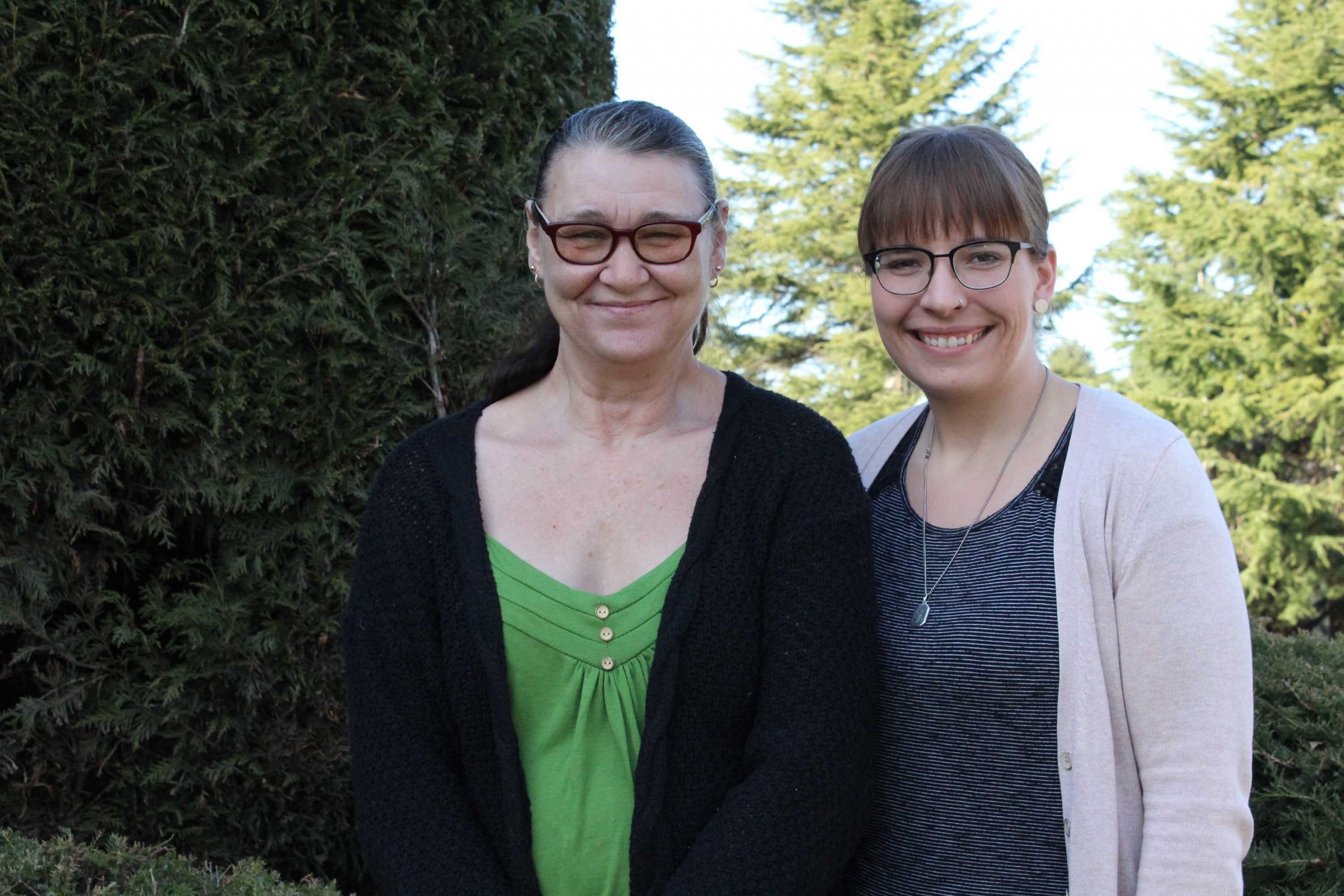
“They have saved me from a life of sadness and depression,” she says. “I’m happy. I have family, I have friends. I am doing more and more. That’s my pot of gold. I could never have seen my life the way it is today, even two years ago.”
Related Stories
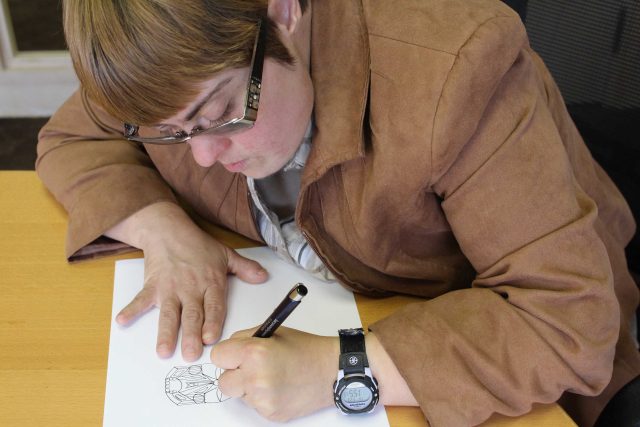
Artist Creates Unique Colouring Book
Kara-Lyn Loewen has used her talents to create a unique colouring book. Find out how you can get your copy today!
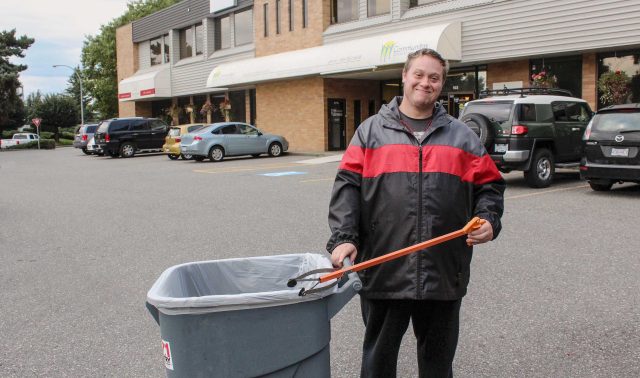
Keeping It Clean
If you’ve noticed that the litter on your street has been picked up, the errant shopping cart is no longer on your lawn or the broken streetlight has been repaired, you might have Shane Toy to thank for that.
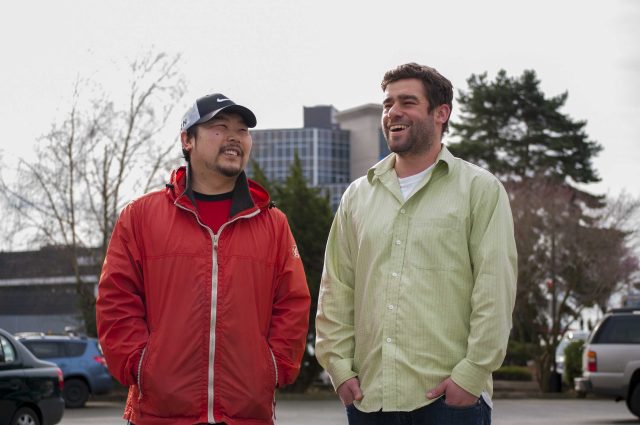
On the Path to Wellness
Brian and Micah feel it is important for the church to talk about mental illness and create safe places for people to share their stories